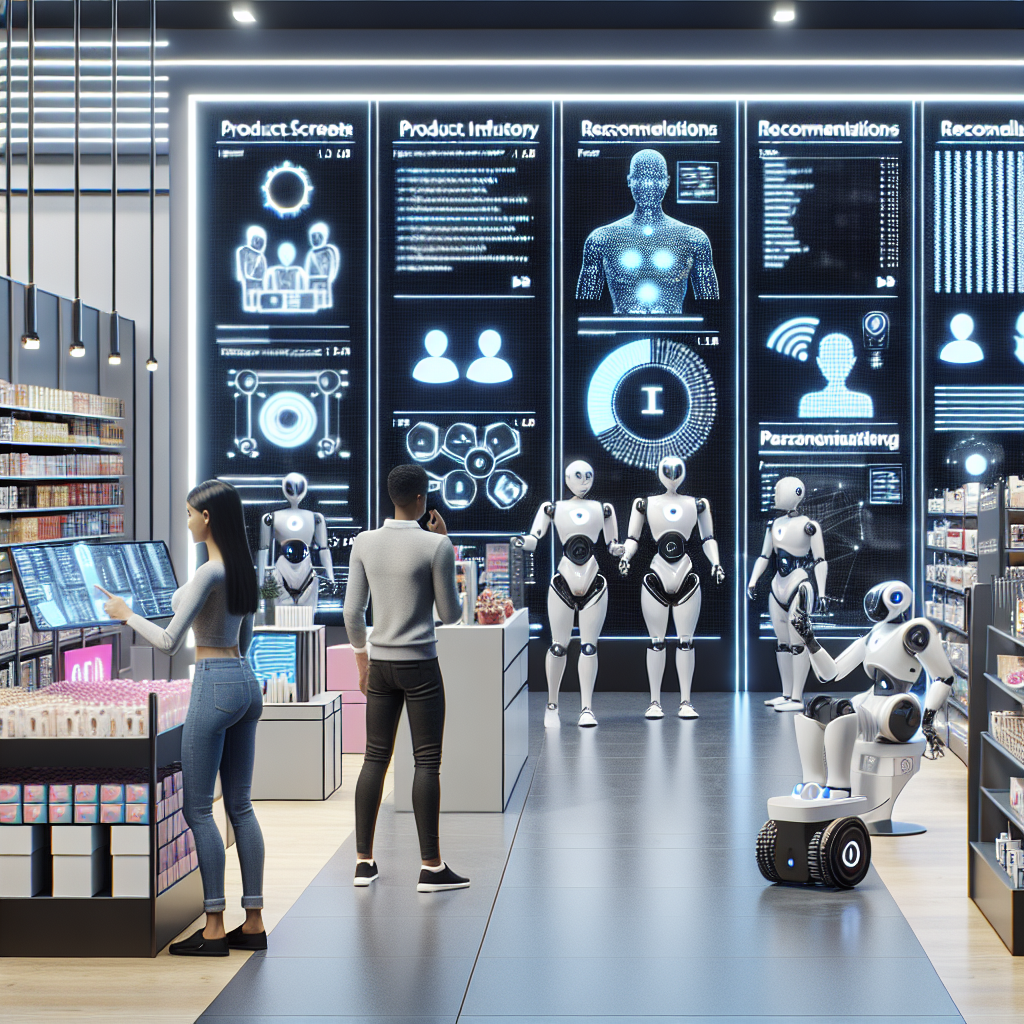AI tools are revolutionizing the retail industry in ways that were once thought impossible. From personalized shopping experiences to improved inventory management, artificial intelligence is changing the way retailers do business. In this article, we will explore how AI tools are transforming the retail industry and how they are reshaping the way consumers shop.
Personalized Shopping Experiences
One of the most significant ways that AI tools are transforming the retail industry is through the use of personalized shopping experiences. AI algorithms can analyze customer data to create personalized recommendations based on a customer’s preferences, purchase history, and browsing behavior. This allows retailers to provide a more tailored shopping experience for their customers, leading to increased customer satisfaction and loyalty.
For example, online retailers can use AI-powered recommendation engines to suggest products that a customer may be interested in based on their previous purchases. This not only helps customers discover new products that they may not have otherwise found but also increases the likelihood of a purchase being made. In-store retailers can also use AI tools to provide personalized recommendations to customers based on their location in the store and past purchase history.
Inventory Management
Another way that AI tools are transforming the retail industry is through improved inventory management. AI algorithms can analyze sales data, market trends, and other factors to predict demand for products and optimize inventory levels. This can help retailers avoid stockouts and overstock situations, leading to increased sales and reduced costs.
AI tools can also help retailers optimize their supply chain by identifying inefficiencies and suggesting improvements. For example, AI algorithms can analyze transportation routes to find the most cost-effective way to deliver products to stores or customers. This can help retailers reduce shipping costs and improve delivery times.
Customer Service
AI tools are also transforming customer service in the retail industry. Chatbots powered by AI algorithms can provide instant support to customers, answering questions and resolving issues in real-time. This can help retailers provide a better customer experience and reduce the burden on customer service representatives.
AI-powered chatbots can also be used to provide personalized recommendations to customers based on their preferences and purchase history. This can help retailers upsell and cross-sell products, increasing sales and customer satisfaction.
Fraud Detection
AI tools are also being used to detect fraud in the retail industry. AI algorithms can analyze transaction data to identify suspicious patterns and flag potentially fraudulent transactions. This can help retailers reduce losses due to fraud and protect their customers’ sensitive information.
AI-powered fraud detection systems can also adapt and learn over time, becoming more effective at detecting new and emerging fraud schemes. This can help retailers stay one step ahead of fraudsters and protect their bottom line.
FAQs
Q: Are AI tools replacing human workers in the retail industry?
A: While AI tools are automating some tasks in the retail industry, such as inventory management and customer service, they are not replacing human workers entirely. Instead, AI tools are augmenting human workers by helping them work more efficiently and effectively.
Q: How can retailers ensure that AI tools are being used ethically?
A: Retailers can ensure that AI tools are being used ethically by being transparent about how they are using AI algorithms and protecting customer data. Retailers should also regularly audit their AI systems to ensure that they are not biased or discriminatory.
Q: Are AI tools expensive to implement in the retail industry?
A: While there are upfront costs associated with implementing AI tools in the retail industry, the long-term benefits can outweigh these costs. AI tools can help retailers increase sales, reduce costs, and improve customer satisfaction, making them a worthwhile investment for many retailers.
In conclusion, AI tools are transforming the retail industry in a variety of ways, from personalized shopping experiences to improved inventory management. By leveraging the power of AI algorithms, retailers can provide a better shopping experience for their customers, optimize their operations, and stay ahead of the competition. As AI technology continues to evolve, we can expect to see even more innovations in the retail industry that will further enhance the way we shop and interact with retailers.

